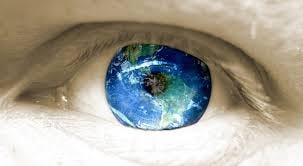Dear Leila,
In my last letter, I talked about the way collective memory circulates in objects long after the culture that produced those objects has passed into history—consider a grandchild drinking out of a Van Gogh sippy cup, for example. But I also noted that in addition to material culture, societies also produce ideas and attitudes—more specifically, as I explained in yet another letter, structures of feeling—that mark them as distinctive, and which persist, often outside of their original context, for a long time afterward.
Here's a structure of feeling that characterized France, and much of the rest of the western world in the years before that First World War I’ve been writing so much about lately: a belief in the reality, and efficacy, of Progress: capital P. Progress as in moral Progress. Economic Progress. Social Progress. We live in an era of Progress, too, though twenty-first Progressives speak about it with different accents—they’re more likely to emphasize equality and diversity, for example. These Progressives, by contrast, believed in the Christianizing power of civilization for colonized non-white peoples. In the force of science and reason to generate and sustain social order. That a general rise in living standards, however uneven, would steadily continue, particularly if allowed to flourish under the guidance of leaders—there was some disagreement about who exactly they were talking about, ranging from kings to entrepreneurs to bureaucrats—who could manage collective growth.
Such tissue of beliefs constituted what might be termed a worldview. Some of the people who embraced such a worldview did so consciously, and indeed tried to persuade others to adopt it. For most people, though, this worldview was largely subconscious, articulated if pressed to by people or circumstances, but more commonly functioning as a form of instinctive common sense used in situations ordinary citizens encountered in daily life.
Having made some effort here to assert that there is such a thing as a worldview, even if it’s not always explicit, I will also say that’s not quite the whole story. That’s for two reasons. The first is that people change their minds in response to specific circumstances—like unexpected, sudden changes—that provoke them to revise their outlook. The second is that worldviews may evolve collectively. Views that once seemed radical can come to be sensible, and eventually even old-fashioned. People may continue to maintain them, even as become aware that they’re situated on a different point of a collective spectrum, which may lead them to change, revise, or reinforce their structures of feeling.
But there’s one more aspect of what I’m talking about here that actually goes to the heart of why I’m addressing you with this whole line of thinking, Leila. Which is that worldviews are never developed or sustained in isolation. They also jostle, sometimes forcefully, with other worldviews—and very often, that jostling may take place inside an individual’s head. A notion of Progress looks very different to a starving woman than it does to a well-fed, if occasionally anxious, man. And so it is that I tell you that there was another world view that was competing with what I’ll call the myth—by which I mean not falsehood, but rather widely held, but empirically unprovable—of Progress. And that’s what I’m going to get into next time, not only in relation to the Belle Époque circa 1900, but also that of 2000. We’ll call that the next installment of this imagined bedtime story.



